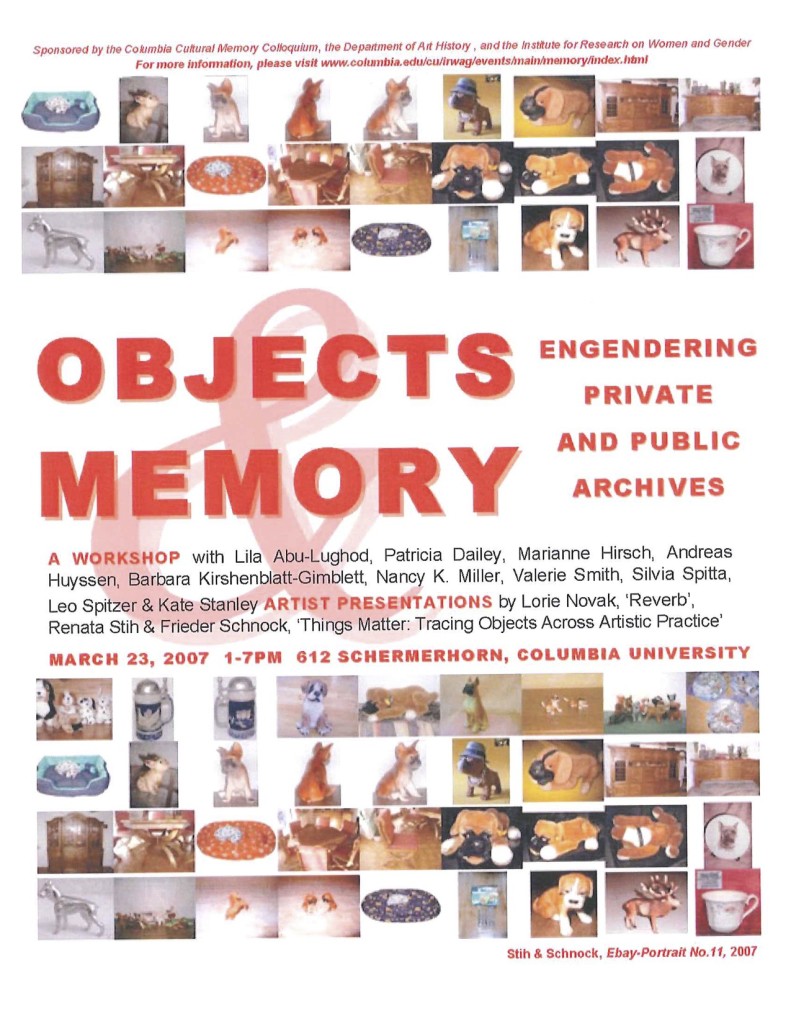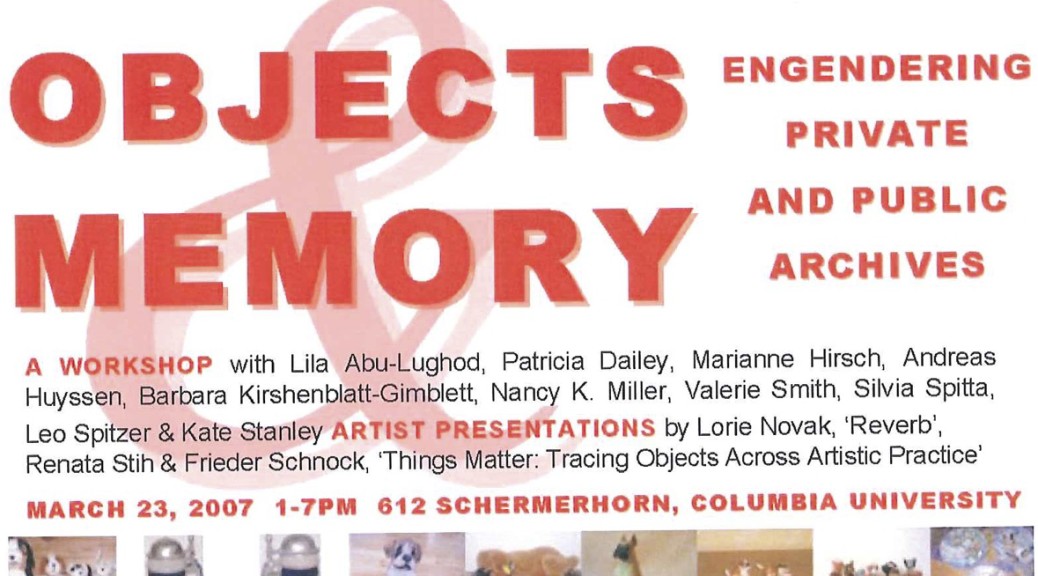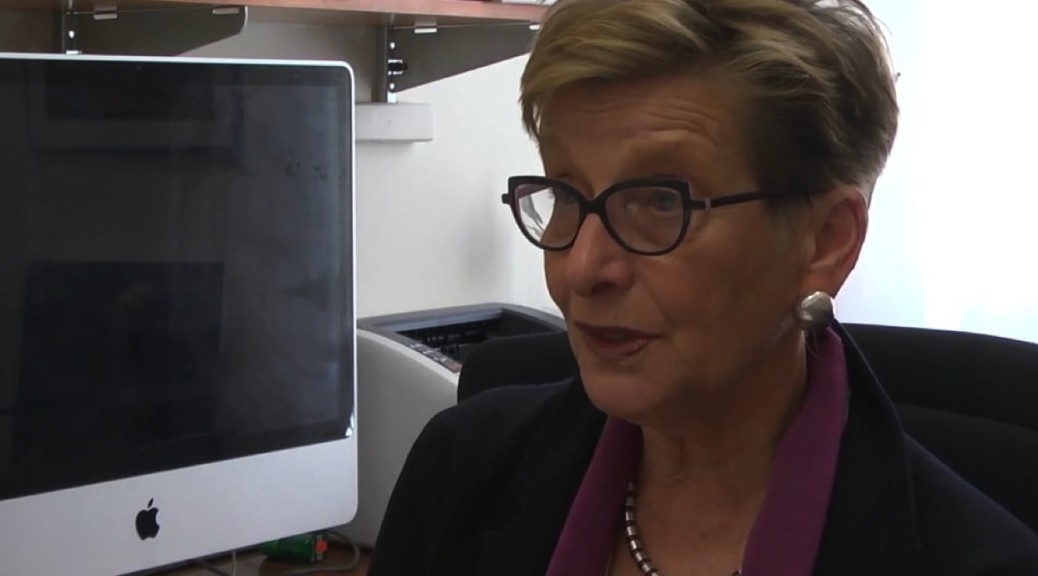
Category Archives: Marianne Hirsch
“Women Creating Change…”
MARIANNE HIRSCH
Professor of English and Comparative Literature
IRWGS Core Faculty
IRWGS Director, 2007-08, 2015
Our central project with the Global Centers, that I’ve been involved in, is Women Creating Change. That’s already a multi-pronged project. We were actually invited to invent something on women and gender that would happen at the Global Centers. To his credit, Lee Bollinger realized that we have all these Global Centers, we have a lot of initiatives, but somehow there isn’t enough work going on around gender and sexuality. So he invited me, actually, to come see him and said, would I be willing to work on something that would make gender and sexuality much more central to what some of the Global Centers are doing. I said, “Yes, if we can house it in the Center for the Study of Social Difference,” because we already have that center.
We decided to keep the same model—we called it Women Creating Change—and be around some working groups that people were already doing. We decided to identify some crucial questions that were affecting women and that were questions around gender that are happening globally. Memory is one of them, religion is another, urbanization and the urban was another one that was really important. Another line is on social policy questions and the relationship of the state to social lives, and state welfare, and state sponsored programs that would benefit the social life of the population. Questions of education and healthcare and things like that. We’ve had a welfare state model in the developed world—not so much in the developing world, but even in developed world—that’s disappearing. So what’s taking the place of that, and how does that affect the lives of women, and families, and men, and migrants and citizens?
Those are the main projects that Women Creating Change is built on. The one that I’ve been involved in has been Women Mobilizing Memory. We’ve built collaborations with the Global Center in Chile and the Global Center in Istanbul. It’s something that could really also go elsewhere. Some of the people at the Global Center in Brazil are interested in that. So we’re really looking at strategies of mobilizing the memory of past catastrophes, and present disasters as well, toward the future and toward change. It draws on memory studies but it also draws on activism and it brings together the arts and the humanities, and the more humanistic social sciences because academic structures are different in each of these places.
“…students are pushing against the limits of the curriculum”
MARIANNE HIRSCH
Professor of English and Comparative Literature
IRWGS Core Faculty
Director of IRWGS, 2007-08, 2015
Well, the field is changing. Students are changing and I think the curriculum is changing as well. I mean, the biggest shift, curricularly, is that we’ve added “Sexuality” to our name. I think we’ve always been doing sexuality and we are the place at Columbia, certainly in Arts & Sciences, that’s doing sexuality. We’ve been trying to appoint a faculty member in that field, but short of that, we have a number of people who teach it and who have come forward and been willing to teach it. I think that move towards sexuality has been a very big one. The global focus is getting more urgent. I think it already was when I first arrived here and at Columbia. IRWGS appointed Lila Abu-Lughod and Beth Povinelli, so they’ve brought that in and Roz Morris was the director when I first was hired. I think we’ve had that very much at the forefront of our mission, but it takes constant care to maintain it and to enlarge it. We’ve tried to appoint somebody in Latin American Studies, for example. That didn’t succeed but we’re hoping to do, again, this constant vigilance to try to have course offerings that are broad in that way. That’s been some of the shift.
I think what I’ve seen also is a shift in student culture. I feel like recently, really, in the last two or three years, students are just more activist. Changing things in the world seems more urgent to them. I think the kinds of sophistication about analyses of issues of social difference has just been so much more at the forefront of students’ thinking, both undergraduate and graduate. That’s been a shift from the first decade of this century when I think fighting the war was a big issue, and then the economic depression, I think, made all of us more discouraged and probably students more quiescent.
We’re doing this interview on the heels of the protests in Baltimore, so I think we’re seeing something erupt that has been building and it has to do with just tremendous economic inequalities. I’d like to think that students are beginning to realize what it costs their parents for them to be getting this education and to take a look at what that privilege means and who is excluded from it. I think that’s part of it. In terms of gender and sexuality, I think just this larger conversation that’s been taking place in the US that comes out of the gay marriage debate––I think the country’s become so polarized around every question that students are being drawn into some of these questions, whether they want to or not.
I don’t think it’s because the curriculum has changed. I think that students are pushing against the limits of the curriculum, which has not necessarily changed. At the same time, there are a lot of initiatives that are beginning at Columbia, for example, the Justice Initiative and teaching in prisons. I mean, that’s kind of new here and the opportunities to do more of that, more work with the community, public humanities––I think those spaces are opening up and I think students are seeing those opportunities.
“Studying intersectionally with other aspects of social difference…”
MARIANNE HIRSCH
Professor of English and Comparative Literature
IRWGS Core Faculty
Director of IRWGS, 2007-08, 2015
When we thought about what is the next stage for the study of gender and the study of gender and sexuality, it was really what we were already doing, which is to study it intersectionally with other aspects of social difference, whether they be race or class or sexuality or economics. Also collaborations with other programs, so we approached some of our cognate centers and institutes, IRAAS [Institute for Research in African American Studies], the African American studies, CSER [Center for the Study of Ethnicity and Race], [Institute for] Comparative Literature and Society and then the Barnard Center for Research on Women. We said, “What if we formed this research center, would you want to participate with us?” They all said yes.
They’re not all of them as active as some of the others, and IRWGS is still the most active. We thought: well, we’re doing all the curricular stuff but what about studying new things and collaborating more around scholarship? So we approached the president of Columbia and he gave us some seed money to form this center.
The fact that we really wanted to have a more collaborative space I think was also attractive. I’ve devoted a lot of my energy to building that. It was always going to be for faculty, but also for graduate students. It was not going to be another programming unit that would just put on events because there’s so much of that here. They’re all great, but we can’t possibly split ourselves into little molecules to go to them all. It’s really going to be a more in depth, long range collaboration and working together in working groups.
I’ve been involved in two of them. One is Engendering Archives and the other one is on Women Mobilizing Memory, which is the more global one. Engendering Archives, which is one of the three first, is actually still going. It was initially a large mailing list of about forty people, with funding for three years, but it’s actually still meeting two or three times a semester and people have been reading each other’s books or presenting papers with a respondent—very, very in depth, fabulous discussions of people’s work. I think when you’re in a big university where a lot is going on, the trick is to find a space in which you can build a community and try to accomplish something that you really believe in. CSSD has been that kind of space for me, as well as the cultural memory seminar and then IRWGS in a larger way.


